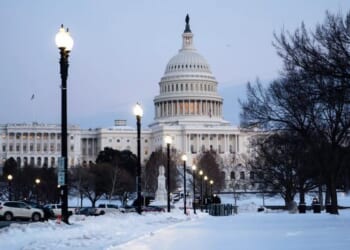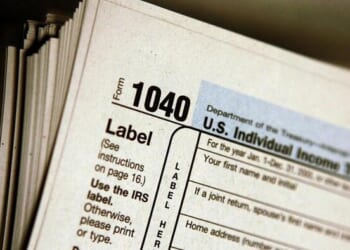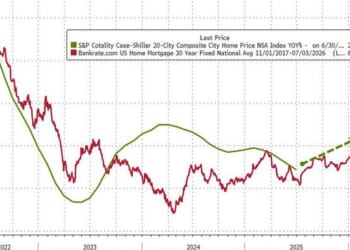For once the SEC, perhaps having finally learned its lesson from the Global Financial Crisis, or simply because it read one too many critical pieces in the press in recent weeks, is not waiting until the credit bubble bursts to warn the raters not to engage in rating shopping.
Bloomberg, which was the first to highlight Egan-Jones’ role in rating thousands of credit ratings in the multi-trillion private credit market, reports that the Securities and Exchange Commission has been scrutinizing Egan-Jones Ratings, delving into the business practices of a leader in the fast-growing market for private-credit ratings.
According to the report, SEC enforcement attorneys are “looking into whether the firm and some of its senior executives have exerted improper commercial influence on its ratings procedures, said the people, who asked not to be identified discussing the ongoing probe.“
Officials in the agency’s complex financial instruments unit are involved in the investigation, the people said. The probe began during the Biden administration and has continued this year. The regulator hasn’t accused Egan-Jones or its officials of wrongdoing as part of this probe, and it wasn’t clear how advanced the review was.
An Egan-Jones representative said the firm takes compliance “very seriously and remains in good standing with our regulator.” He added that the business “remains dedicated to serving our clients and the global capital markets.”
The SEC declined to comment, citing the ongoing US government shutdown. “During the shutdown, the SEC’s public affairs office is not able to respond to many inquiries from the press,” the agency said in a statement.
Egan-Jones is a Nationally Recognized Statistical Rating Organization, an accreditation which allows its grades to be used by US insurers to calculate their regulatory capital charges. A higher rating means an insurer has to set aside less against an asset.
Egan Jones built a dominant position early in the rapidly expanding private credit market as bigger ratings agencies focused on serving the larger public sectors. Roughly a a third of the $6 trillion of cash and invested assets held by US life insurers was allocated to various types of private credit investments, Moody’s Ratings estimates based on a survey of insurers it rates.
Insurers will be this generation’s “widows and orphans”: private credit represents 35% of total US insurers’ investments pic.twitter.com/ifV8CB2nrj
— zerohedge (@zerohedge) October 29, 2025
According to Bloomberg, Egan-Jones bills itself as the most prolific grader in that market and last year rated more than 3,000 private credit investments, all with about 20 analysts, prompting questions not only about rating shopping but quality control. The role that such ratings play in the industry’s boom has been in the spotlight this year, as more insurers seek to gain exposure to the private credit markets.
In a report published last month, the Bank for International Settlements said that private credit grades used by insurance companies tend to be concentrated among smaller ratings firms, raising the risk of “inflated assessments of creditworthiness.”
Separately, Bank of England Governor Andrew Bailey recently told lawmakers he’d had conversations with industry figures who assured him that “everything was fine in their world, apart from the role of the rating agencies.” UBS Group AG Chairman Colm Kelleher said on Tuesday he’s beginning to “see huge rating agency arbitrage in the insurance business.”
Egan-Jones had attracted scrutiny from large players in the industry over its upbeat ratings of various private credit loans, Bloomberg reported in June.
Loading recommendations…


















